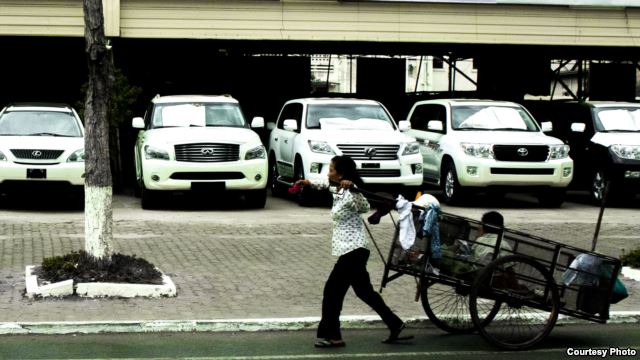
[전문 & mp3] / [받아쓰기]
Opinions about income inequality are not hard to find. Many people are concerned about the issue. Kalpana Kochhar is Deputy Director of Strategy, Policy and Review Department at the IMF. On Monday, she said, “The gap between the rich and the poor is at the highest level in decades in advanced countries, and inequality is also rising in major emerging markets.” The new report is called “Causes and Consequences of Income Inequality: A Global Perspective.” Ms. Kochhar said, inequality trends have been mixed in emerging markets and developing countries. Some countries are experiencing falling inequality rates, with poor people and the middle class making gains. However, pervasive inequities in education, health care, and finance remain in areas such as Latin America, Middle East and Africa.
* income inequality = 소득불평등/ decade = 10[십]년/ advanced country = 선진국/ emerging market = 신흥 시장/ make gains = 개선(이윤/증가/이점)을 만들다/ pervasive = 만연하는
The report suggested that policymakers direct their attention on the poor and middle class. That is because they are the major force for economic growth -- or an increase in a country’s gross domestic product, or GDP. The GDP is the value of all the finished goods and services produced within the country. The organizers of the study disputed the main idea of what has been called "trickle down" economic theory. The theory states that economic benefits provided to the wealthy will indirectly help everyone else. The idea is that money and other financial resources will "trickle down" to them. The IMF study, however, shows the opposite is true. It found that a one percent increase in the earnings of the richest 20 percent of people led to a nearly one percent decrease in GDP growth over a five-year period. An increase in the income share of the poorest 20 percent, the study found, led to more than a one-third percent increase in GDP.
* policymaker = 정책 입안자[담당자]/ major force = 주요 세력/ economic growth = 경제 성장/ dispute = 반박하다, 이의를 제기하다/ trickle down = (국가의 경제 시스템을 통해) 부유층에서 서민층으로 흘러가다/ financial resources = 경제자원(재원)












